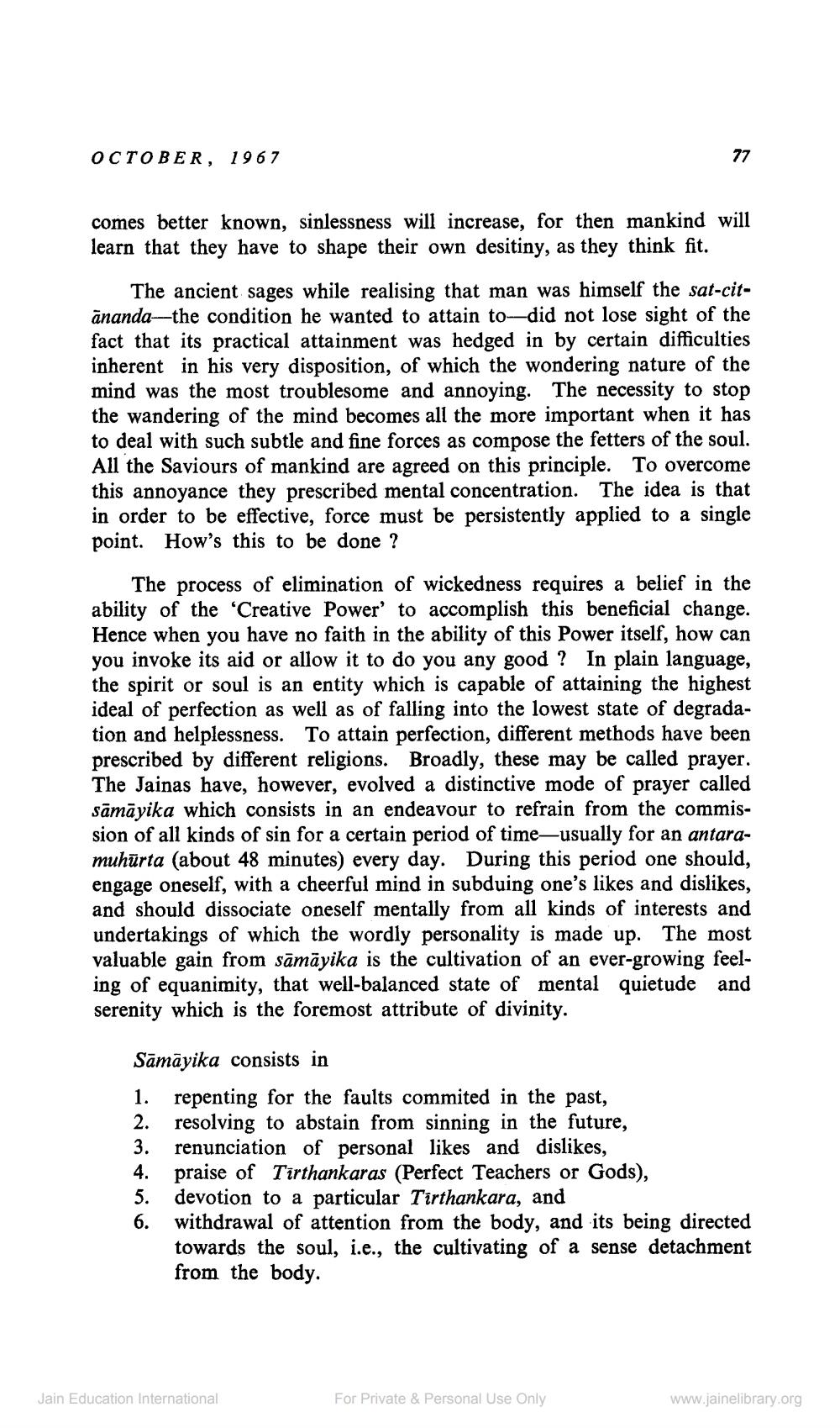________________
OCTOBER, 1967
comes better known, sinlessness will increase, for then mankind will learn that they have to shape their own desitiny, as they think fit.
The ancient sages while realising that man was himself the sat-citānanda-the condition he wanted to attain todid not lose sight of the fact that its practical attainment was hedged in by certain difficulties inherent in his very disposition, of which the wondering nature of the mind was the most troublesome and annoying. The necessity to stop the wandering of the mind becomes all the more important when it has to deal with such subtle and fine forces as compose the fetters of the soul. All the Saviours of mankind are agreed on this principle. To overcome this annoyance they prescribed mental concentration. The idea is that in order to be effective, force must be persistently applied to a single point. How's this to be done ?
The process of elimination of wickedness requires a belief in the ability of the Creative Power' to accomplish this beneficial change. Hence when you have no faith in the ability of this Power itself, how can you invoke its aid or allow it to do you any good ? In plain language, the spirit or soul is an entity which is capable of attaining the highest ideal of perfection as well as of falling into the lowest state of degradation and helplessness. To attain perfection, different methods have been prescribed by different religions. Broadly, these may be called prayer. The Jainas have, however, evolved a distinctive mode of prayer called sāmāyika which consists in an endeavour to refrain from the commission of all kinds of sin for a certain period of time—usually for an antaramuhürta (about 48 minutes) every day. During this period one should, engage oneself, with a cheerful mind in subduing one's likes and dislikes, and should dissociate oneself mentally from all kinds of interests and undertakings of which the wordly personality is made up. The most valuable gain from sāmāyika is the cultivation of an ever-growing feeling of equanimity, that well-balanced state of mental quietude and serenity which is the foremost attribute of divinity.
Sāmāyika consists in 1. repenting for the faults commited in the past, 2. resolving to abstain from sinning in the future,
renunciation of personal likes and dislikes, praise of Tirthankaras (Perfect Teachers or Gods), devotion to a particular Tirthankara, and withdrawal of attention from the body, and its being directed towards the soul, i.e., the cultivating of a sense detachment from the body.
Jain Education International
For Private & Personal Use Only
www.jainelibrary.org




